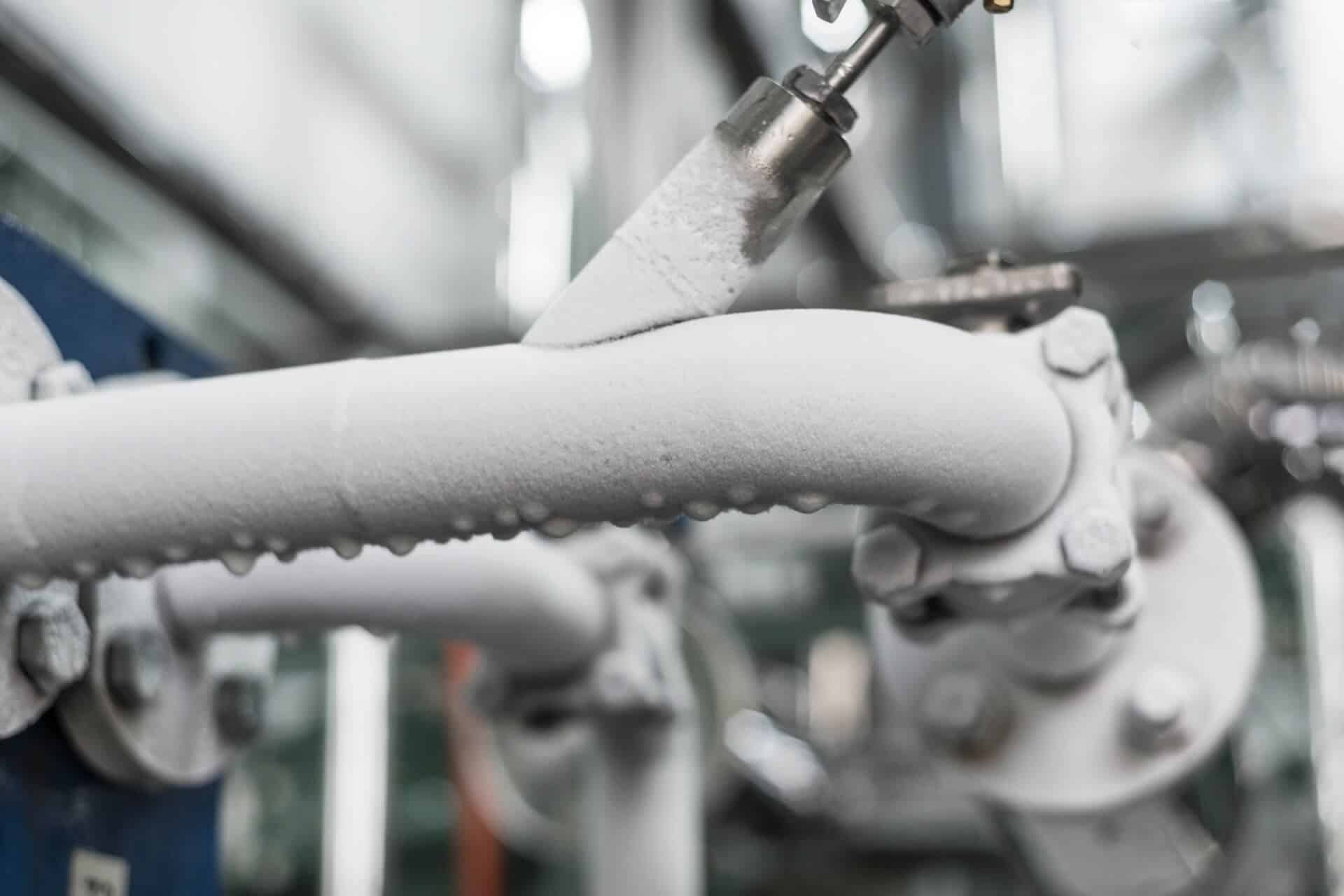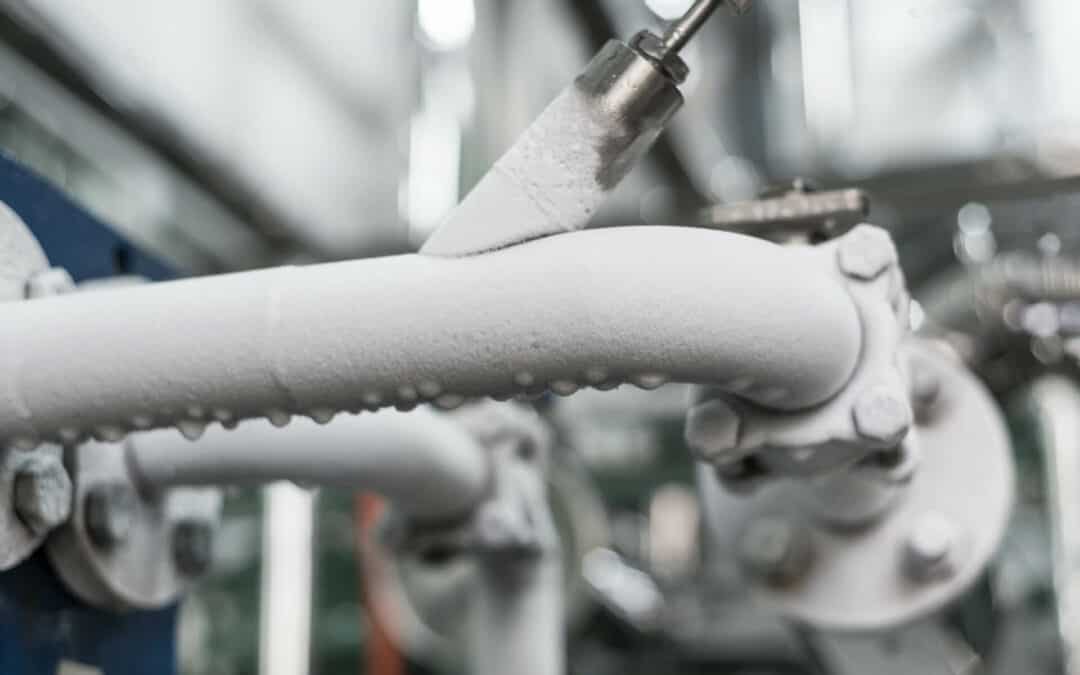Preventing Frozen Pipes and What To Do If They Burst
Frozen pipes are a frequent issue during cold weather that can cause significant harm to your home and belongings. When water freezes, it expands, putting pressure on the pipes, which can result in cracks or bursts. A burst pipe can flood homes, ruin furniture, and cause water damage while also creating health hazards. Therefore, preventing frozen pipes beforehand is crucial, as is acting promptly if you suspect any signs of them being frozen or having burst already.
Stop Frozen Pipes From Happening
To prevent pipe freezes from occurring in your home, insulating exposed cold water pipes is crucial, as are any pipes that are close to exterior walls. You should also insulate kitchen sink pipes and water tanks. This advice is also for those pipes located in unheated spaces such as lofts, garages, or basements where temperatures tend to drop significantly during the winter months and are likely candidates for a pipe burst.
Proper foam insulation will keep your pipes at a steady temperature in extreme weather conditions and will reduce the likelihood of them freezing and you experiencing costly repairs. Purchase suitable materials like foam pipe sleeves or fibreglass batts at DIY stores or online and wrap them around these vulnerable sections of plumbing systems where there is a flow of water, effectively blocking out cold air while reducing heat loss simultaneously. By taking this proactive measure, you can avoid costly repairs and damage caused by burst pipes due to ice formation later on down the line!
You can also buy a tank jacket for your hot water tank, which will make it more efficient, or a tank jacket for your cold water tank, which will help prevent it from freezing in the colder months and extreme cold. Good and sound building insulation will also help prevent frozen pipes inside in the winter, as your home or business will be kept at a more consistent temperature.
You should check your pipe insulation annually and replace any areas that are worn to ensure your pipes are protected in any cold weather conditions.
An effective method of prevention for frozen water pipes is to leave the heating on low even when you’re not at home or asleep at night. Additionally, setting your thermostat to maintain a minimum temperature of 12°C (54°F) will help circulate warm air around vulnerable pipe areas and prevent them from becoming too cold. By following these steps, you can avoid costly repairs caused by burst pipes due to frozen water. Remember, an investment in pipe maintenance could save you money later!
Preventing frozen water pipes is crucial during cold weather conditions. One effective method is to allow a small amount of cold water to flow from exposed pipe taps by leaving them partially open. The slow drip will prevent the formation of ice within these pipelines and ensure uninterrupted access to running water when needed most. To achieve this, simply adjust your tap settings until you notice a steady drip coming out. There is no need for excessive usage, but keep an eye on your water metre if you do this!
To avoid the inconvenience of frozen pipes during the winter months and in cold temperatures, it is advisable to take preventative measures such as draining any unused tanks or hoses. For instance, if you have an outdoor sprinkler system, turn off the water supply and drain any remaining liquid before the temperature drops below freezing; this will help prevent potential damage from expanding ice within your pipelines. By following these simple steps ahead of time, you can rest easy knowing that no unexpected surprises await in colder weather.
Signs Your Pipes Are Frozen
In extremely cold weather conditions and short cold snaps, even with all precautions taken into account, sometimes pipes may still freeze up. If you notice any of these signs, then it is likely that your piping system has been affected.
-
- Lack of, or low, water pressure from taps and faucets indicates a frozen pipe
- Strange noises, such as whistling, clanking, or cracking sounds emanating from the plumbing, indicate potential damage caused by ice formation within them.
- Frosted or iced-over pipelines, along with unpleasant odours coming out of drains and sinks, are other indicators pointing towards possible blockages due to freezing temperatures.
Use caution when dealing with this issue since bursting pipes can cause significant property damage, leading to costly repairs later on down the road!
If you detect any of these, it’s imperative to take immediate action to check your pipes, and if they are frozen, then thaw them before they burst. Don’t delay and turn your water off at your main water supply in your property!
Contact us at Total Boiler Services today at 02922 407934 and we will arrange for one of our qualified and professional emergency plumbers to come out to you quickly.
Thawing Frozen Pipes: The Best Methods
If you suspect that your pipes are frozen, the first step is to pinpoint exactly where they’re affected. You can do this by inspecting visible sections for cold spots or signs of freezing and checking under sinks or near metres for stopcocks (which control water supply). Turn off these valves before attempting any thawing measures, as bursts could occur otherwise.
When dealing with frozen pipes, it’s crucial to apply heat in a controlled manner. Don’t use blowtorches or candles, as they can cause damage and spark fires. Instead, try these methods.
When dealing with frozen pipes, there are several ways to thaw them out quickly and effectively. One option is to wrap a hot, wet cloth around the pipe itself; simply replace it as needed until it is no longer necessary.
Another approach involves using either an electric heating pad or hair dryer to blow warm air onto affected areas while keeping a distance from any potential sources of water or electrical danger at all times during this process.
Placing a hot water bottle filled with boiling liquid over specific sections can also work well in combination with the other methods mentioned above when trying to get rid of ice buildup on pipelines efficiently without causing damage elsewhere within your home’s plumbing system.
Last but not least, utilising fans or heat lamps strategically placed near problematic spots where freezing occurs frequently will help maintain temperatures high enough so that future issues won’t arise again soon after initial repairs have been made successfully! Remember: prevention is key here; take proactive measures now before things escalate further down the line later on!
To thaw a frozen pipe effectively, it is essential to apply heat while simultaneously opening the tap connected to the pipe. This will allow water to flow as pressure builds up in the pipe during defrosting. Beginning from where the tap connects and working towards the area affected by freezing ensures optimal results.
To ensure full water pressure from the tap, you should persist in applying heat until all frozen pipes have been thawed. It is advisable to tackle each pipe separately for optimal results.
What To Do When Your Pipes Burst
When faced with a plumbing emergency, like burst pipes or flooding, it can be overwhelming. But taking these steps will help you stay calm and minimise damage.
If your pipes have burst, taking these steps immediately is crucial:
-
- Turn off the main water valve at your stopcock to prevent further leaks from occurring, and if necessary, call your water company if the leak is coming from outside your property’s supply lines
- Switch off your electricity supply at the main source for your property, usually located in an electrical panel box known as a fuse box, for safety reasons
- Don’t delay calling for professional assistance; choose a reliable plumber who can assess the situation quickly and provide solutions accordingly
- To prevent water seepage from damaging any furniture or belongings, remove them from the affected areas right away. Use buckets or towels if necessary to collect excess moisture on surfaces before you have had a chance to drain the pipes when they are unfrozen
- Open windows and doors wide open, allowing fresh air circulation throughout the space, which helps dry out wet materials and excess water faster while also reducing mould growth risks
- Finally, take pictures of all visible damage, including indoor pipes, before filing a claim for water damage with your insurance company. These actions may seem daunting, but following them could save time, money, and stress further down the line
Frozen hot and cold water pipes can cause significant inconvenience for homeowners during the winter months. However, with some simple preventative measures such as insulating your pipes, keeping heating on a low setting at all times, dripping taps regularly, and draining unused ones, you can avoid this issue altogether without incurring any repair costs later down the line!
If you are faced with frozen or burst pipelines, do not hesitate to seek professional assistance promptly from a skilled emergency plumber who will provide efficient solutions quickly, ensuring safety and warmth throughout the cold weather seasons ahead. Stay safe and cosy through the winter by taking these proactive steps today.
We can help and offer emergency plumber callouts for Wales and South Wales. Call us today at 02922 407934 and we can help.

About Total Boiler Services
Total Boiler Services provides repair, servicing, maintenance, and emergency repair for pipework, heating, and hot and cold water systems. Our plumbers and gas safe registered engineers are qualified to work on all makes and models of systems. They go through regular refresher training throughout the year, so they are always up-to-date. If you have frozen pipes, turn off the water from your mains supply and shut off the valve immediately. Call us, and a professional plumber from our expert team will be dispatched to you quickly to assess what needs to be done.
When we come to service your boiler system, we will check for any signs of damage to your central heating system, hot water system, and pipework. If you have old metal pipes, we can change them to newer-style plastic pipes that won’t corrode and are less likely to leak or freeze. Insulating your water supply pipes, hot water, and boiler system so you don’t have to worry about the colder temperatures and the potential for severe water damage to your property. To make life easier for you, a qualified plumber from our team can insulate your pipework with the most effective products so they are kept at a consistent temperature, reducing the likelihood of your pipes freezing.
Contact us today at 02922 407934, email us or use our Contact Us form to find out more about what we do and how we can help you.


